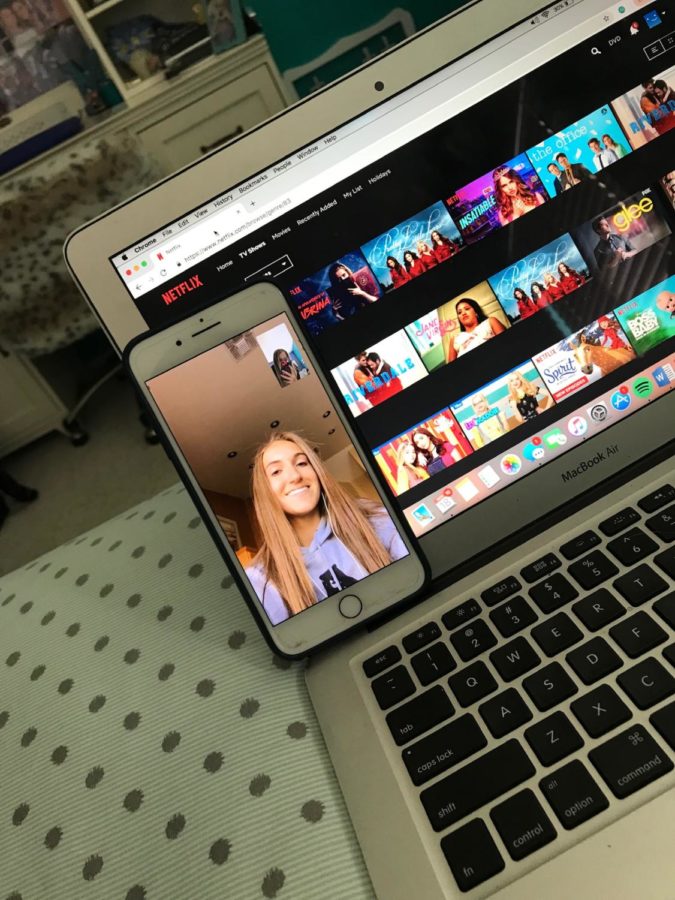How do cell phones affect your sleeping pattern?
Teenagers are attached to their cell phones and it seems like everything about their lives is on such a small device. From schedules to social media to unlimited information, these small devices are utilized excessively for so many different reasons. Teenagers especially are dependent on communication with their friends and family through social media, as well as through streaming music.
Junior Kit Blouin says “I use my phone as a tool throughout the day and it often prevents me from getting work done as I lose track of time and get lost in the cyber world. My phone is a key part of my life and often keeps me up at night. It becomes a distraction and prevents me from getting a healthy amount of sleep. I get about 5 hours of sleep at night on average but I will say it’s not just my phone, it’s the homework too.”
With busy schedules, sleep is the most important way to maintain health and maximize energy and the use of cell phones can deprive this necessity. It is common for teenagers to stay up late using FaceTime or texting a friend, or watching their favorite series on Netflix when instead they should be sleeping. Additionally, cell phones are seen as a distraction throughout both the day and night, leading to procrastination, pushing schedules back and taking away from sleep.
According to Nationwide Children’s Hospital, the average teenager gets about 7 hours of sleep a night, but 9 hours is the standard amount to maintain a healthy lifestyle. Coach Barbara Chura comments on what she thinks about the excessive use of cell phones in teenagers: “It is a distraction that leads to procrastination and takes you away from being a better student, a better athlete, a better friend. If teenagers would be disciplined enough to try turning off their phone at an earlier time every day for a week, it could affect their lives.”
Although cell phones can negatively affect sleep, Apple has introduced “night shift” as a way for users to safely look at their phones in the dark. The light from cell phones can cause serious eye problems, but night shift is a strong attempt to resolve that issue. Although cell phones can cause loss of sleep, some people use their alarm on their cell phone to regulate their sleep. Senior Helen Innes says “I’m on the cross country team and we have morning practice at 5:15 and a lot of people on the team use their phones as an alarm because they can set multiple alarms to be on time to practice.”




